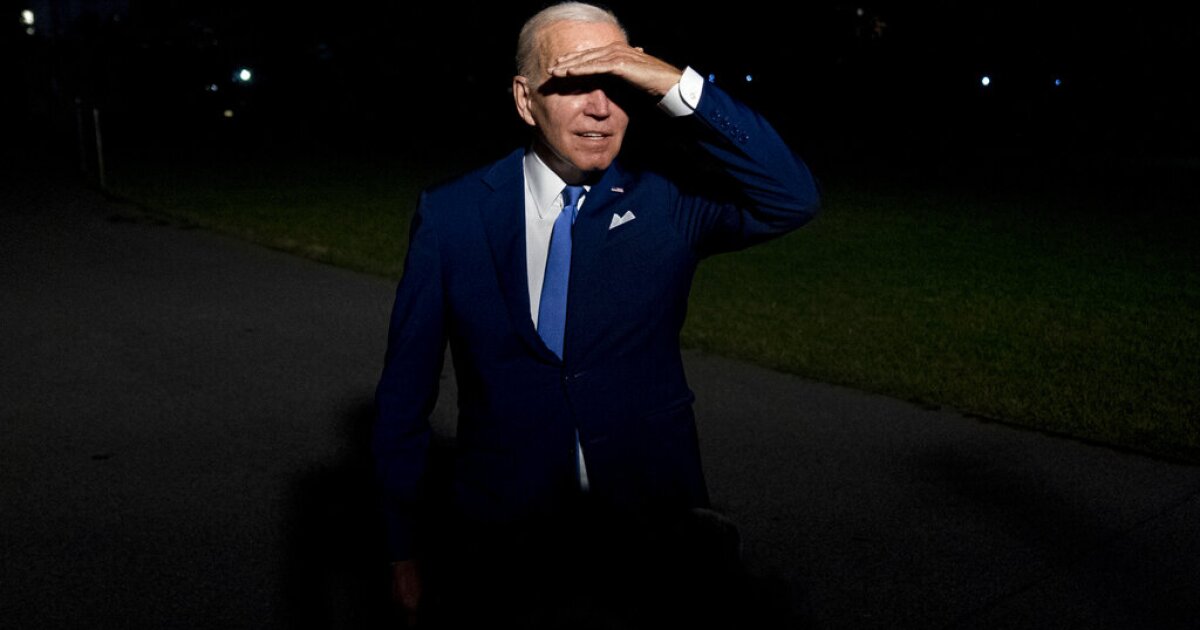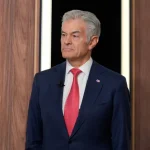

When President Joe Biden took office, he attempted to distance himself from his predecessor in most areas.
But he embraced a core pillar of former President Donald Trump’s Middle East policy: the landmark normalization pacts between Israel and several Arab nations that the Trump White House brokered in 2020.
BIDEN ADVISER’S MULTIMILLION-DOLLAR DIVESTMENT ‘STILL IN PROCESS’ AFTER FOUR MONTHS
Biden wrote in July that his administration was “working to deepen and expand” the Abraham Accords between Israel, the United Arab Emirates, and Bahrain, a message he reiterated in Jerusalem days later.
Though Biden has no single appointee handling it, his top envoy to Israel has worked alongside the administration to strengthen the existing agreements, telling the Times of Israel this week that his role is “to go deeper” with the existing agreements, while “Washington’s goal is to go wider” in seeking new ones.
The United States has advanced some steps to bring Israel closer to other states. During a visit to the region in July, Biden announced the transfer of two strategic Red Sea islands to Saudi Arabia, the opening of commercial overflights between Israel and Saudi, and Hajj flights between Tel Aviv and Mecca. He also met with Saudi Crown Prince Mohammed Bin Salman, easing friction with the young leader and delivering him a political win.
But Biden faces obstacles to adding new signatories, including regional politics and challenges with the existing deals.
A deal to provide the UAE with F-35 fighter jets was “critical” to securing the deal, former Secretary of State Mike Pompeo told an Israeli newspaper last year. Yet that transaction has stalled amid concerns over the Gulf country’s ties with China.
Israel is facing new elections, adding uncertainty.
“There just aren’t that many other members, Arab states in particular, who are willing and able to create the same kind of political circumstances as the Emirates,” said Aaron David Miller, a former State Department Middle East analyst and negotiator. “This is not a mass movement.”
Over the summer, Saudi leaders indicated that the kingdom would need to see a shift in the Israeli-Palestinian dynamic to consider the prospect.
“Everybody keeps talking about normalization as if that’s the goal, and I think that’s the lowest common denominator,” said Princess Reema bint Bandar al Saud, the kingdom’s U.S. ambassador, during a private briefing with reporters in Jeddah. “The goal is a two-state solution where Palestinians and Israelis both have thriving populations and opportunity and can live in safety and security. That’s the goal.”
The accords worked to separate questions of Palestinian statehood from normalizing ties with Israel, which Arab states had long maintained would be essential to any deal.
But the UAE was likely the exception and not the rule.
“The Emirates drove the train on this, and the Israelis were all too willing and ready to receive it,” Miller explained. “There is no other Arab state that I can see that has the interest, motivation, nor is there anything that the Biden administration could offer to Qatar or Oman that would get them to join the club.”
“You don’t have many Arab countries that fall into the sort of rare basket that the Emirates fall into,” he added.
U.S. domestic politics may also be a factor.
“Some key Arab states are looking beyond Joe Biden,” Miller said. “MBS, I’m sure, would like to see the return of Donald Trump or his avatar.”
Trump’s senior adviser Jared Kushner, an architect of the accords, developed a close relationship with the crown prince that has continued since the Trump administration left office.
CLICK HERE TO READ MORE FROM THE WASHINGTON EXAMINER
The midterm elections, followed by a presidential race in 2024, could shake up the U.S. domestic political environment. Miller said other Arab states might be eyeing the future.
“There’s a lot of uncertainty about the Biden administration with respect to the Middle East, and nobody is willing to take the plunge,” he said.







